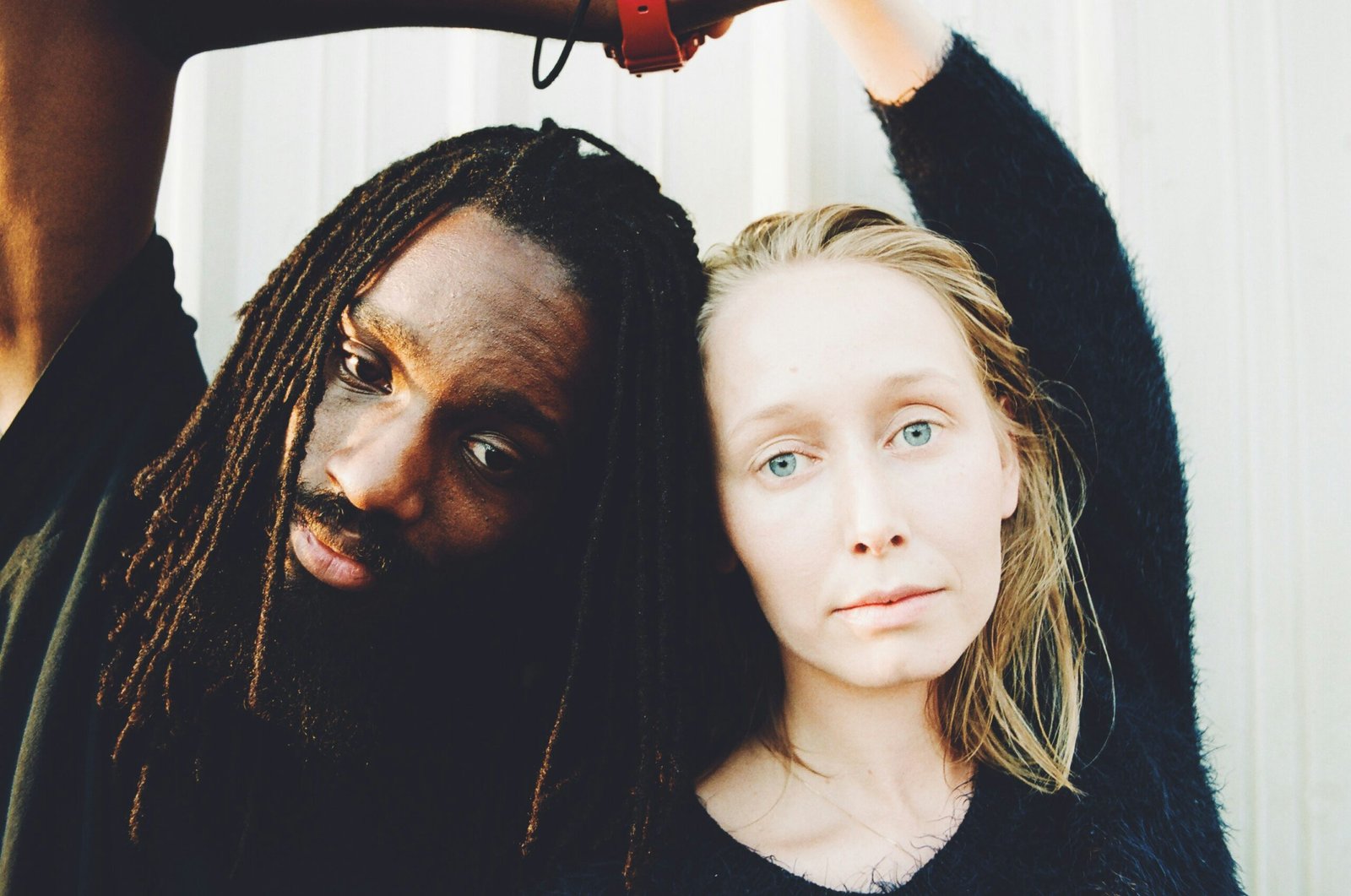In today’s evolving dating landscape, the dynamics of initiating dates or contact have undergone a significant transformation. Gone are the days of traditional gender roles dictating who must make the first move. Instead, a refreshing shift in expectations has taken place, granting individuals the freedom to take charge and break away from societal norms. This article delves into the fascinating phenomenon of how expectations about who initiates dates or contact have changed and explores the factors driving this empowering shift. Join us as we unravel the intricate web of modern dating etiquette and discover how these changes have revolutionized the pursuit of love and connection.
Traditional Gender Roles
Historical Expectations
In the past, traditional gender roles defined specific expectations for men and women. Men were generally seen as the initiators when it came to dating and romantic relationships. They were expected to take the first steps, such as asking someone out on a date or making the initial contact. On the other hand, women were often expected to be passive and wait for men to approach them. These expectations were deeply rooted in societal norms and were reinforced through cultural practices and beliefs.
Men as Initiators
Men were traditionally expected to take the lead in dating and pursue romantic relationships. They were often seen as the ones responsible for making the first move, expressing their interest, and initiating dates or contact. This expectation placed a certain burden on men, as they were expected to demonstrate confidence and assertiveness in their approach. It also created a power dynamic where men held more control over the initiation and progression of relationships.
Women as Passive
In contrast to men, women were often expected to be passive and wait for men to approach them. They were encouraged to be more receptive to advances, giving men the opportunity to take the lead. This expectation placed women in a position of passivity, where they had limited control over their romantic experiences. It also created a sense of dependency, as women relied on men to make the first move and determine the course of the relationship.
Gender Stereotypes
Traditional gender roles perpetuated stereotypes about masculinity and femininity. Men were expected to be assertive, confident, and independent, while women were expected to be nurturing, submissive, and dependent. These stereotypes reinforced societal norms and expectations, shaping how individuals perceived themselves and others in the dating context. The adherence to these stereotypes limited the possibilities for self-expression and hindered the development of genuine connections based on individual compatibility.
Changing Societal Norms
Embracing Gender Equality
In recent years, societal norms have shifted towards embracing gender equality in various aspects of life, including dating. The recognition that both men and women have the right to initiate dates or contact has challenged the traditional gender roles in dating. This shift reflects a more progressive and inclusive perspective, acknowledging that individuals should have equal opportunities to express interest and pursue relationships.
Breaking Stereotypes
As society becomes more aware of the harmful impact of gender stereotypes, there has been a concerted effort to break free from these limitations. Both men and women are now encouraged to challenge traditional gender roles and shape their dating experiences based on their individual preferences and desires. Breaking stereotypes allows for more authentic connections, where individuals can express their true selves without conforming to societal expectations.
Gender Neutral Expectations
The move towards gender equality has led to increasingly gender-neutral expectations in dating. The emphasis is on treating both individuals as equals, allowing them to share responsibilities and make decisions collaboratively. Instead of adhering to rigid gender roles, dating now focuses on mutual respect and understanding, emphasizing that both partners have a voice in shaping the relationship.
Respecting Individual Preferences
While gender equality is important, it is equally essential to respect individual preferences in dating. Some individuals may feel comfortable adhering to more traditional gender roles, while others may prefer a more egalitarian approach. The key is to create an environment where individuals can freely express their preferences without judgment or coercion. Respecting individual choices allows for a diversity of dating experiences and fosters healthier and more fulfilling relationships.
Evolution of Dating Culture
Technology and Communication
Technological advancements have drastically transformed the way we communicate and connect with others, including in the realm of dating. The rise of smartphones, social media, and dating apps has made it easier to initiate contact and express interest in potential partners. Technology has created new avenues for communication, enabling people to connect and establish relationships with individuals they may not have encountered otherwise.
Online Dating Platforms
The emergence of online dating platforms has significantly impacted the dating culture. These platforms provide a space for individuals to showcase their personalities, interests, and desires, allowing for more informed decision-making when choosing potential partners. Online dating has also democratized the initiation process, as both men and women have the opportunity to express interest and make the first move.
Blurred Lines of Initiative
With the advent of online dating and increased gender equality, the lines of initiative have become blurred. In the past, men were expected to be the primary initiators, but now both men and women have the freedom to take the lead. The digital landscape has leveled the playing field, creating a more egalitarian dating environment where individuals can express interest and make connections based on compatibility rather than prescribed gender roles.
Openness to Communication
The evolution of dating culture has fostered a greater openness to communication. People are now more willing to engage in meaningful conversations about their expectations, desires, and boundaries. This shift encourages individuals to express their needs and actively participate in shaping the dynamics of their relationships. Open communication helps establish a solid foundation built on trust, understanding, and mutual respect.
Shift in Responsibilities
Mutual Initiative
In contemporary dating, there is a growing emphasis on mutual initiative. Both partners are encouraged to take an active role in initiating dates, contact, and the progression of the relationship. Mutual initiative promotes equality, as it recognizes that both individuals should have an equal say in the development and direction of the relationship. This shift removes the pressure and expectation placed solely on one gender, allowing for a more balanced and harmonious dynamic.
Shared Decision Making
Alongside mutual initiative, shared decision making has become an integral part of modern dating. Couples are encouraged to actively collaborate and make joint decisions regarding important aspects of their relationship, such as planning dates, discussing future aspirations, or addressing any challenges that may arise. Shared decision making fosters a sense of partnership and equality, ensuring that both individuals’ perspectives and desires are considered.
Honest Conversations
To navigate the changing landscape of dating, honest conversations have become critical. Open dialogue enables individuals to express their expectations, desires, and boundaries in a relationship. By sharing their thoughts and feelings honestly, couples can establish a foundation of trust and respect. Honest conversations also help in identifying and addressing any potential issues or misunderstandings, ultimately fostering healthier and more fulfilling relationships.
Balancing Power Dynamics
With the rejection of traditional gender roles, there has been a renewed focus on balancing power dynamics in relationships. Instead of one partner holding more control or influence, modern dating encourages an equitable distribution of power. Balancing power dynamics ensures that both individuals have equal agency and influence in decision making, creating a more harmonious and fulfilling partnership.
Rejection of Traditional Roles
Challenging Expectations
The rejection of traditional gender roles involves challenging societal expectations that dictate how men and women should behave in dating and relationships. It requires questioning deeply ingrained beliefs and norms that perpetuate inequality and restrict individual autonomy. Challenging expectations involves recognizing that each individual is unique and should be able to express their desires and take initiative in dating free from stereotypical limitations.
Breaking Norms
Breaking norms goes beyond challenging expectations; it involves actively defying and dismantling the social constructs that uphold traditional gender roles. It requires individuals to embrace their authentic selves, irrespective of societal pressure or judgment. By breaking norms, people pave the way for a more inclusive and accepting dating culture, allowing individuals to engage in relationships based on their own terms and preferences.
Empowering Individuals
Rejecting traditional roles and breaking norms empowers individuals to take control of their own lives and experiences. It allows them to define their own paths and establish relationships that align with their values and desires. Empowerment in dating comes from acknowledging that every individual has the agency to make choices that reflect their true selves, without being constrained by gendered expectations.
Eradicating Gender Bias
The rejection of traditional gender roles is a crucial step towards eradicating gender bias in dating and relationships. By challenging and dismantling societal expectations, individuals contribute to creating a more gender-neutral and inclusive dating culture. Eradicating gender bias requires continuous efforts to promote equality, respect, and understanding among all individuals, regardless of their gender.
Impact of Feminism
Fighting Patriarchy
Feminism plays a significant role in challenging traditional gender roles and dismantling patriarchal structures that perpetuate inequality. By advocating for gender equality and challenging societal norms, feminism has empowered individuals to break free from the limitations imposed by traditional roles. Fighting patriarchy is about challenging and dismantling the systems and beliefs that assign power and privilege based on gender.
Asserting Autonomy
Feminism encourages individuals to assert their autonomy in dating and relationships. It emphasizes the importance of individuals making choices that align with their personal values and desires, rather than conforming to societal expectations. Asserting autonomy helps individuals navigate dating experiences on their own terms, without feeling compelled to adhere to traditional roles or succumb to external pressures.
Equal Participation
One of the core principles of feminism is promoting equal participation for all individuals in all aspects of life, including dating and relationships. Equal participation challenges the notion that one gender should have more control or influence than the other. In a feminist context, equal participation ensures that both partners have an equal voice in decision making, creating a more balanced and fulfilling relationship dynamic.
Creating Opportunities
Feminism has played a crucial role in creating opportunities for individuals of all genders to express themselves authentically and engage in dating and relationships on their own terms. By advocating for equal rights and dismantling gendered expectations, feminism has contributed to a more inclusive dating culture that recognizes the diverse experiences and desires of individuals.

Cultural and Regional Variations
Global Perspectives
Expectations about who initiates dates or contact can vary significantly across different cultural contexts and regions. Cultural factors, such as values, norms, and traditions, influence the perceptions and behaviors related to dating. In some cultures, traditional gender roles may still be strongly upheld, with men being expected to take the lead in dating initiation. In contrast, other cultures may have more egalitarian expectations, where both men and women feel empowered to initiate and engage in dating experiences.
Regional Differences
Expectations regarding dating initiation can also vary within regions or countries based on regional or sub-cultural differences. Urban areas, for example, may have more progressive attitudes towards gender roles compared to rural areas. These regional differences highlight the complexity of societal norms and the influence of local communities on dating expectations.
Religion and Tradition
Religion and tradition play a significant role in shaping expectations about dating initiation and contact. Some religious beliefs or traditional practices may prescribe specific gender roles and responsibilities in dating and relationships. These religious and traditional perspectives can influence how individuals navigate the dating landscape and define their roles within a relationship.
Modernization vs. Traditional Values
The tension between modernization and traditional values can impact expectations about dating initiation. In societies undergoing rapid modernization, there may be a clash between traditional gender roles and more egalitarian expectations. This clash can create a dynamic where individuals navigate between preserving cultural traditions and embracing progressive values.
Influence of Media and Pop Culture
Changing Portrayals
Media and pop culture have played a significant role in shaping societal perceptions of dating initiation over time. In the past, media often reinforced traditional gender roles, with men depicted as the initiators and women portrayed as passive recipients of attention. However, there has been a shift in recent years, with media representations becoming more diverse and inclusive. Changing portrayals challenge traditional roles and redefine dating expectations by showcasing individuals of all genders taking the initiative and being actively involved in dating experiences.
Media Recognizing Equality
Contemporary media outlets are increasingly recognizing the importance of gender equality in dating and relationships. They are actively promoting narratives that highlight the need for mutual initiative and respect, portraying individuals of all genders as capable and empowered. By recognizing and reinforcing equality, media and pop culture play a vital role in shaping societal norms and expectations.
Role Models and Influence
Media and pop culture also have the power to influence individuals’ aspirations and behaviors in dating. Positive and empowering role models in movies, TV shows, and music can inspire individuals to challenge traditional gender roles, embrace their individuality, and pursue fulfilling and equitable relationships. These role models can help shift societal expectations about dating initiation and contact.
Reframing Narratives
Media has the ability to reframe narratives around dating initiation, challenging traditional gender roles, and promoting inclusivity. By featuring diverse perspectives and stories, media outlets can reshape societal beliefs and foster empathy and understanding among individuals. Reframing narratives allows for representation and recognition of the diverse experiences and desires of individuals in the dating realm.
Personal Preferences and Expectations
Individual Choices
In the evolving dating culture, personal preferences and choices take center stage. Each individual has unique preferences when it comes to dating initiation and contact. Some may prefer a more traditional approach, while others may prefer a more egalitarian or non-traditional approach. Personal choices allow individuals to navigate dating experiences based on what feels most authentic and aligned with their values.
Communicating Expectations
Clear and open communication about expectations is crucial in modern dating. Individuals should feel comfortable expressing their preferences and desires to potential partners. Communicating expectations allows for a better understanding of each other’s needs and can lead to more fulfilling and compatible relationships. By discussing expectations openly, partners can navigate dating experiences with greater clarity and respect.
Navigating Modern Dating
Navigating modern dating involves adapting to the changing expectations and dynamics in the dating landscape. It requires individuals to approach dating with flexibility and an open mind. Being adaptable allows individuals to explore different approaches to dating initiation, connect with others authentically, and find what works best for them in the realm of modern dating.
Flexibility and Adaptability
Flexibility and adaptability are essential qualities in the ever-evolving dating culture. Adapting to new norms and expectations fosters better connections and relationships. By being open to different approaches and perspectives, individuals can embrace the diverse dating experiences that an evolving culture offers.
Effects on Relationships
Increased Communication
The redefined expectations and acceptance of mutual initiative in dating have led to increased communication between partners. With the dismantling of traditional gender roles, individuals feel more empowered to express their desires, needs, and concerns openly. Increased communication allows for a deeper understanding between partners, contributes to the building of trust, and fosters a stronger bond.
Building Mutual Respect
By rejecting traditional gender roles and embracing inclusivity in dating, relationships can flourish in an atmosphere of mutual respect. Mutual respect is cultivated through recognizing and valuing each other’s autonomy and unique perspectives. It is about treating each other as equals and appreciating the individual contributions both partners bring to the relationship.
Encouraging Equality
The rejection of traditional gender roles encourages equality in all aspects of a relationship. When both partners have an equal say in decision making and are actively involved in shaping the relationship, a sense of balance and fairness is fostered. Encouraging equality allows for a healthier and more harmonious partnership, where both individuals feel valued and supported.
Lessening Pressure
The shift away from traditional gender roles has lessened the pressure on individuals to conform to societal expectations. By recognizing that both men and women can take the initiative and be actively involved in dating, individuals can experience dating in a more relaxed and authentic manner. Lessening the pressure to adhere to rigid gender roles allows for a more individualistic approach to dating, where partners can build connections based on compatibility and shared values.
In conclusion, the expectations about who initiates dates or contact have evolved significantly over time. Traditional gender roles, which placed men as the initiators and women as passive, have been challenged by changing societal norms that embrace gender equality. This shift has led to a dating culture where mutual initiative, shared decision making, and open communication are valued. It has also empowered individuals to reject traditional roles, fight against gender bias, and assert their autonomy. While cultural, regional, and media influences can shape expectations to some extent, personal preferences and choices play a significant role in navigating modern dating. The effect of these changes on relationships includes increased communication, building mutual respect, encouraging equality, and lessening the pressure to conform to traditional roles. Embracing the evolution of dating expectations allows individuals to engage in healthier and more fulfilling relationships, ultimately creating a more inclusive and equal society.
Christopher Conway, the innovative mind behind “Love Blueprints,” is a seasoned relationship expert and author. His insightful guidance, drawn from years of experience and study, offers transformative strategies for modern love and dating. Christopher’s commitment to enhancing romantic connections has made “Love Blueprints” a go-to resource for those navigating the complexities of relationships.






